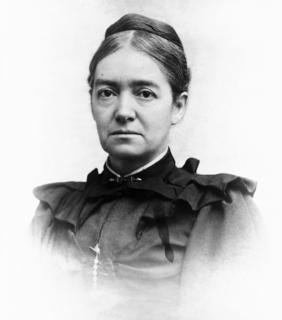A Quote by Kedar Joshi
If God were to exist for the entire humanity, he would be profoundly vile, as he allows the existence of unfathomable sin, stupidity, madness, and misery for no reason than his own despicable enjoyment. God exists though, not for all humanity, but for a one chosen man - a philosopher - who is bound to answer the greatest philosophical question, the question about the nature of the questioner's existence, which progressively quenches the divine vanity.
Quote Topics
Related Quotes
We try to evade the question of existence with property, prestige, power, possession, production, fun, and, ultimately, by trying to forget that we- that I- exist. No matter how much he thinks of God or goes to church, or how much he believes in religious ideas , if he, the whole man, is deaf to the question of existence, if he does not have an answer to it, he is marking time, and he lives and dies like one of the million things he produces. He thinks of God, instead of experiencing God.
Suicide may also be regarded as an experiment - a question which man puts to Nature, trying to force her to answer. The question is this: What change will death produce in a man's existence and in his insight into the nature of things? It is a clumsy experiment to make; for it involves the destruction of the very consciousness which puts the question and awaits the answer.
Life, by which I mean my life, is a great, or probably the greatest, design, from its very beginning to its end, the end that, I think, is unlikely to exist. Each and every bit of life is a part of the design. Design exists as the consequence of the ultimate questioner's vanity. And my mission is to find the most fundamental truth, which probably and exclusively involves the nature of the existence of the ultimate questioner.
The problem of reconciling human suffering with the existence of a God who loves, is only insoluble so long as we attach a trivial meaning to the word "love", and look on things as if man were the centre of them. Man is not the centre. God does not exist for the sake of man. Man does not exist for his own sake. "Thou hast created all things, and for thy pleasure they are and were created." We were made not primarily that we may love God (though we were made for that too) but that God may love us, that we may become objects in which the divine love may rest "well pleased".
Our own theory is that sin was ordained only in view of redemption, and that accordingly redemption shows forth as the gain bound up with sin; in comparison with which there can be no question whatever of mischief due to sin, for the merely gradual and imperfect unfolding of the power of the God-consciousness is one of the necessary conditions of the human stage of existence.
Know that the difficulties which lead to confusion in the question what is the purpose of the Universe or of any of its parts, arise from two causes: first, man has an erroneous idea of himself, and believes that the whole world exists only for his sake; secondly, he is ignorant both about the nature of the sublunary world, and about the Creator's intention to give existence to all beings whose existence is possible, because existence is undoubtedly good.
If you find it difficult to love the human in someone, then love the divine in him. The divine in him is God. God exists in that person just as God exists in you. To love God is extremely easy because God is divine and perfect. Each time you look at an individual, if you can consciously become aware of God's existence in him, then you will not be disturbed by his or her imperfections or limitations.
An atheist is someone who is certain that God does not exist, someone who has compelling evidence against the existence of God. I know of no such compelling evidence. Because God can be relegated to remote times and places and to ultimate causes, we would have to know a great deal more about the universe than we do now to be sure that no such God exists. To be certain of the existence of God and to be certain of the nonexistence of God seem to me to be the confident extremes in a subject so riddled with doubt and uncertainty as to inspire very little confidence indeed.
The existence of God is not logically necessary, and yet, on the basis of some profound peculiar empirical order in the universe, it seems that He exists as the ultimate uncreated Being, implying a paradox, as no logically unnecessary entity can be uncreated. This paradox is the ultimate question asked by God, who is nothing but the ultimate questioner.
A dialogue is very important. It is a form of communication in which question and answer continue till a question is left without an answer. Thus the question is suspended between the two persons involved in this answer and question. It is like a bud with untouched blossoms . . . If the question is left totally untouched by thought, it then has its own answer because the questioner and answerer, as persons, have disappeared. This is a form of dialogue in which investigation reaches a certain point of intensity and depth, which then has a quality that thought can never reach.
What exists is a godly existence, a divine existence. God not as a person but as a presence certainly exists. But to understand that presence, you have to understand your own inner presence first, because it is from there that you can take off, it is from there that you can have the first glimpse of what godliness is. If you have not known yourself you will never know God.




































